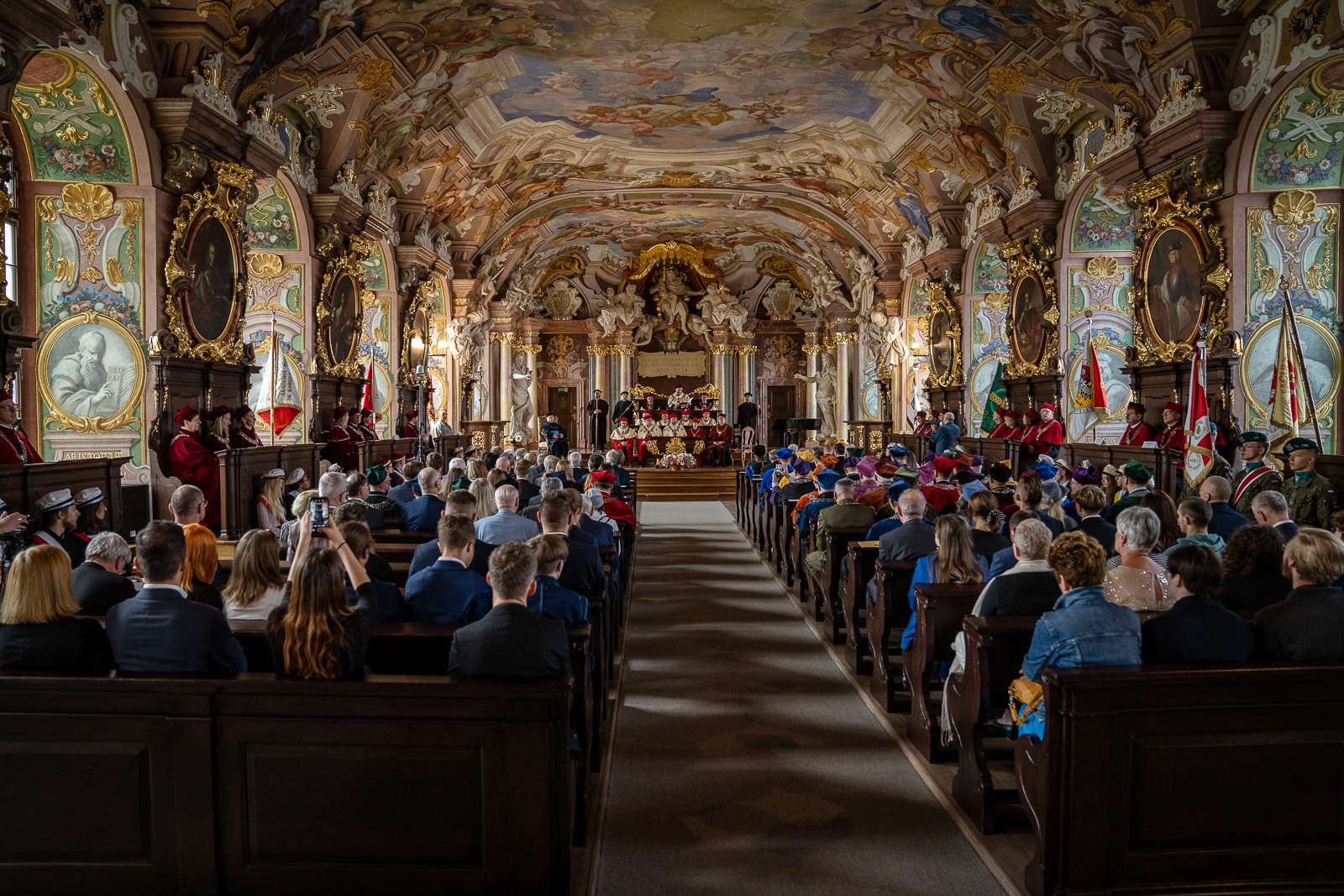
A scientist from Adam Mickiewicz University awarded the Heisig Prize
During the inauguration of the academic year, which is soon to be held at the University of Wrocław, the Heisig Prize will be given to the winner — and it is already known who that is!
This year, two remarkable scholars were nominated in the current edition of the Heisig Prize: prof. Paweł Kulesza and prof. Adam Miranowicz.
All in all, there were eight candidates who were being considered:
- prof. Michał Ciborowski, Medical University of Białystok (medical sciences)
- prof. Marta Gmurek, Łódź University of Technology (mechanical engineering)
- dr hab. Joanna Kujawa, Nicolaus Copernicus University in Toruń (chemical sciences)
- prof. Paweł Kulesza, University of Warsaw (chemical sciences)
- prof. Adam Miranowicz, Adam Mickiewicz University in Poznań (physical sciences)
- prof. Elżbieta Pamuła, AGH University of Science and Technology in Kraków (biomedical engineering)
- prof. Ryszard Smoleński, Medical University of Gdańsk (medical and pharmaceutical sciences)
- prof. Maciej Ugorski, Wrocław University of Environmental and Life Sciences (veterinary science) microbiologist
The winner of this year’s edition of the Heisig Prize is prof. Adam Miranowicz! Congratulations!
The Heisig Prize honours Polish scientists who conduct research at the highest level and whose discoveries change the world.
It is being awarded every two years.
The candidates are chosen by universities participating in the “Excellence Initiative — Research University” programme.
The winner of the first edition of the Award, which took place in 2021, was prof. Jan Potempa, a microbiologist and biochemist from the Jagiellonian University in Kraków. Then, in the next edition, the prize was awarded to prof. Lechosław Latos-Grażyński, a chemist from the University of Wrocław.
Prof. Adam Miranowicz, from the Adam Mickiewicz University in Poznań, was nominated in recognition of his pioneering scientific achievements in the theoretical and experimental foundations of quantum technologies, in particular for developing new methods of generating, controlling, and detecting quantum states of single photons, as well as for the fundamental discovery of the possibility of ultra-strong light–matter coupling and its applications to quantum dissipative engineering.
Professor Adam Miranowicz’s work has introduced innovative approaches and methods enabling, among other things, the quantum squeezing of light, which leads to an exponential enhancement of light–matter interactions and quantum entanglement. His results have allowed for the prediction of new physical phenomena and the development of pioneering experimental methods. In particular, his research on superconducting quantum circuits has opened up novel possibilities for generating, manipulating, and detecting microwave radiation, while his discoveries on ultra-strong light–matter coupling have proven essential for the implementation of new quantum technologies, including sensors and information processing. Many of his ideas have already been confirmed both theoretically and experimentally in renowned laboratories in the USA and the EU. They also show potential applications in the development of superconducting quantum computers, in quantum metrology, and in fundamental studies of quantum mechanics.
For his outstanding and creative scientific contributions in physics, prof. Adam Miranowicz has received numerous prestigious awards, including the Wojciech Rubinowicz Scientific Award (2019) and the Prize of the Prime Minister of Poland (2021).
The prize of the Heisig Prize, which is one of two Polish awards with the highest financial rewards (along with the Prize of the Foundation for Polish Science), is a medal and a cheque worth PLN 200,000 which will be given to the winner.
Professor Norbert Heisig is a German physician, born in 1933 in Breslau. He combined his medical studies with classical philology at the universities of Freiburg, Tübingen, and Hamburg. In 2000 he retired and became actively engaged in supporting, among other things, the academic community of the University of Wrocław.
Translated by Aleksandra Wysoczańska (student of English Studies at the University of Wrocław) as part of the translation practice.
Written by: kg
Date of publication: 24.09.2025.
Added by: M.J.



